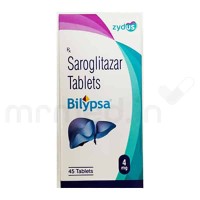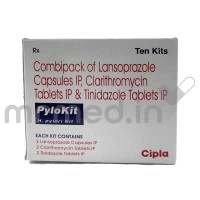Hepcvel tablet contains the active components Sofosbuvir and Velpatasvir. It is used to treat chronic hepatitis C. Hepatitis C is a liver infection caused by the hepatitis C virus (HCV). The treatment duration is often shorter than older treatment regimens. The duration can vary depending on factors such as HCV genotype, previous treatment history, and the presence of liver cirrhosis. Successful treatment with Hepcvel tablet can significantly reduce liver inflammation and fibrosis caused by HCV infection. By achieving viral eradication, the risk of developing liver cirrhosis, liver failure, and hepatocellular carcinoma (a type of liver cancer) can be substantially reduced.
If you have a known allergy or hypersensitivity to Hepcvel tablet or any of the components of the medication, you should not take it. The safety and efficacy of sofosbuvir and velpatasvir combination therapy have not been established in children under 18. Its use in the pediatric population is currently limited. It is recommended to use alternative treatment options or adjust the dosage in these cases.
Therapeutic Effects of Hepcvel Tablet
Pregnancy
There is limited information about the safety of Hepcvel tablet in pregnancy. If you are pregnant and considering taking them, talk to your doctor about the risks and benefits. They can help you decide if they are right for you.
Breast Feeding
There is limited information about the safety of Hepcvel tablet in breastfeeding. If you are pregnant or planning to become one, talk to your doctor about the risks and benefits. They can help you decide if they are right for you.
Lungs
If you have a chronic lung disease and are considering taking Hepcvel tablet, talk to your doctor about the risks and benefits.
Liver
If you have a chronic lung disease, talk to your doctor about the risks and benefits. They can help you decide if Hepcvel tablet is right for you.
Alcohol
It is generally recommended to avoid alcohol consumption during hepatitis C treatment, including Hepcvel tablet. Alcohol can potentially worsen liver damage and interfere with the effectiveness of the medication. It is best to consult with your healthcare provider regarding alcohol consumption during treatment.
Driving
Common side effects of Hepcvel tablet include headache, fatigue, and dizziness. Suppose you experience any of these side effects or other symptoms that may impair your ability to drive safely. In that case, you should refrain from driving or operating heavy machinery until you feel fully alert and capable.
Serious:
- Hepatitis B reactivation
- Severe allergic reactions
Common:
- Headache
- Fatigue
- Nausea
- Insomnia
- Diarrhea
- Itching (pruritus)
- Decreased appetite
- Muscle or joint pain
- Rash
- Dizziness
Hepcvel tablet has shown efficacy in treating hepatitis C in individuals with advanced liver disease or compensated cirrhosis. However, the response rate may vary, and close monitoring of liver function is important during and after treatment.
Yes, regular blood tests are typically conducted during Hepcvel tablet treatment to monitor liver function, viral load, and treatment response. These tests help assess the effectiveness of the medication and ensure patient safety.
Hepcvel tablet can be used in patients with mild to moderate kidney impairment without dose adjustment. However, patients with severe renal impairment or end-stage renal disease may require dose adjustments or alternative treatment options. It is important to discuss your kidney function with your healthcare provider to determine the most appropriate treatment plan.
Hepcvel tablet is effective and safe in individuals with both hepatitis C and HIV co-infection. However, it is important to coordinate treatment with both infectious disease and HIV specialists to ensure proper management of both conditions.
Weight gain or loss is not commonly reported as a side effect of Hepcvel tablet. However, individual responses to medication can vary. If you experience any unexplained or concerning changes in weight during treatment, it is recommended to consult your healthcare provider for further evaluation.
Hepcvel tablet can be used in patients with a history of liver transplantation who have recurrent hepatitis C. However, individual patient factors and the specific post-transplantation period must be considered. Consultation with a transplant hepatologist or specialist is recommended to determine the most appropriate treatment approach.
While Hepcvel tablet is generally well-tolerated, like any medication, it can potentially cause side effects. Common side effects include headache, fatigue, nausea, and insomnia. Serious side effects are rare but can include severe allergic reactions, changes in heart rate, and liver problems. It is important to discuss any concerns or potential side effects with your healthcare provider, who can provide further information and guidance based on your specific situation.
Molecule name: Sofosbuvir, Velpatasvir | Therapeutic class: Antiviral |
Pharmacological class: 1. Sofosbuvir: Nucleotide analog 2. Velpatasvir: Direct-acting antiviral (DAA) | Indications: Chronic hepatitis C (HCV) infection
|













-200x200.png)



